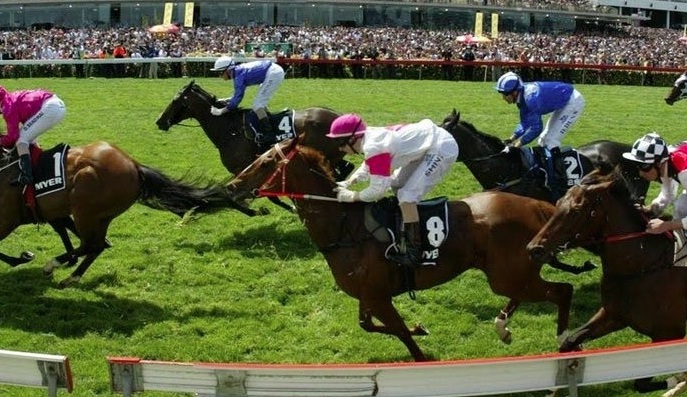
Horse racing offers many recreational and entertainment dimensions to let punters enjoy the thrills of the races. But everyone dreams of winning large amount of money in betting odds of horse racing. It is pretty normal to want quick money; hence having a better chance of staying on top of betting odds is a priority. Selecting a winning horse using all the information and statistics available is a skill. Punters have to make their decisions by observing the horses as they walk in. A healthy horse usually has a shiny hair coat which is short in the summer and luxuriant in winter. Some horses that have been racing well and race dreadfully usually have hidden health problems. Punters need to factor in horse health to have the greater chance of winning.
How well horses will race depends on three factors: its quality, its preparation and its health. Horses that are well bred and look good may never race up to their potential. Most poor-performing horses have many concomitant diseases. The most frequently diagnoses diseases usually involve the lower and upper respiratory tract and the musculoskeletal system. Problems of the respiratory system were the most frequently diagnosed diseases affecting horse performance on the racetrack.
Internal health problems or injuries reduce the horse’s desire to race and restrict its physical movement and reduce performance. Common health problems include joint disease, foot problems, tendon and ligament injuries, bone injuries, back and pelvic conditions, stomach ulcers and horse cancer. Understanding how injuries and diseases can affect horse performance on the race is an important part of race analysis. Such understanding and knowledge can help punters avoid losing bets on horses that are not ready to win.
Equine herpesvirus infections have been in many news articles lately since they are very common in horse populations around the world. There are five know subtypes of equine herpes virus: EHV-1, EHV-2, EHV-3, EHV-4 and EHV-5. The different classification of herpes virus in horses affects different systems; EHV-1 and EHV-4 affect the respiratory and neurological system, while EHV-3 affects the reproductive system. Horses can also acquire sexually transmitted diseases from equine herpes-3 which cause problems such as pain, low conception rates and abortion. Horse owners need to promote horse’s welfare by safeguarding their breeding stock from venereal disease because it has the potential to become widespread. EHV-3 specifically targets the female and male external genitals – primarily the vulva, penis and the perineum. About 10-14 days after viral exposure painful papules will develop on the skin on these areas and then erupt into oozing vesicles that will eventually scab over.
Sexually transmitted diseases can be transmitted directly between mares and stallions during coitus and indirectly via artificial insemination or breeding equipment. Most STD isn’t life threatening to an adult horse, but can cause pain and abortion in broodmares or death in young foals. A veterinarian can make presumptive diagnosis by the clinical signs on the horse. STD screenings through pre-breeding cultures of both mares and stallions help veterinarians detect the disease and prevent transmission.
Contrary to popular belief, rigorous cleaning of the reproductive organs can have a negative effect. Frequent washing with harsh antibacterial soap may predispose the horse to infections by replacing the normal bacteria flora with harmful bacteria. The bacterium can sometimes slips past STD screening test, causing outbreak to the disease free regions. Fortunately, treatment is easy and effective because the bacteria succumb to the wide variety of antibiotics.
The competitive power of a horse basically depends on his physiology and condition. The horse physiology is characterised by growth, maturity and ageing. During horse maturity, its competitive power tends to rise. But as the horse’s degenerate with age his competitive power gradually diminishes. Condition refers to the horse fitness, health and general well-being. A horse that is fully mature and in the top condition will perform at his best level. A punter must make judgment based on the consistency of the horse. A consistent racehorse is more reliable to bet on and has the greater chance of winning.